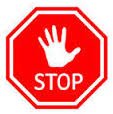If any of the above is relevant to you and you would like more information about good vocal health, and building a solid vocal technique, come to our next course to learn more from our internationally acclaimed multidisciplinary team of voice specialists.
Vocal Health

Vocal Care and Health
The voice is made of living tissue. This makes is susceptible to:
- Overuse
- Misuse & Abuse
- Bad Technique
- Inefficient Speech Patterns
- Accident
- Disease
The quality of one's speaking voice is really important as even professional singers only use their singing voices for 20-25% each day, the rest of voice use tends to be speech. Inefficient speaking patterns create the muscle memory for inefficient singing patterns. If in doubt book to see a speech therapist at a specialist voice clinic.
Below are some things to watch out for and be aware of and tips on efficiency and hydration:

Vocal Abuse
Avoid:
- Raising the voice, loud talking, shouting, yelling
- Projecting the voice with poor technique
- Speaking or singing at an inappropriate pitch
- Speaking or singing with an inappropriate register
- Throat clearing
- Coughing
- Speaking/singing with a dry throat
- Speaking/singing in dusty or smoky environments
- Speaking/singing with laryngitis or a cold or with swollen vocal folds
- Bad postural alignment
- Bad breathing patterns and habits
- Hard Glottal attacks
- Speaking/singing with tension

Acid Reflux
Avoid:
- Eating large meals or lying down right after a meal
- Eating a heavy meal and sleeping on your back
- Eating certain foods: citrus, tomato, chocolate, mint, garlic, onions, or spicy or fatty foods
- Drinking alcohol, carbonated drinks, coffee, or tea
- Smoking
- Taking aspirin, ibuprofen or blood pressure medications

Vocal Overuse
Avoid too much:
- Talking
- Singing
- Laughing
- Coughing
- Vocalising (this includes humming!)

Stop if you feel a Tickle, Scratch or Cough
Avoid vocal constriction - if you feel a tickle, scratch or coughing sensation whilst you are singing stop - you are probably constricting the voice. Seek the avoid of an experienced singing teacher or voice professional.
- The vocal folds have no nerve endings
- You can’t feel when they’re tired or swollen – they ‘just don’t seem to work’
- Sure signs of vocal fold swelling: hoarseness or raspiness in the sound (as the folds can’t achieve full closure) a sense of having to work a lot harder than normal to get the same results.
- If you could feel how much damage you were doing, you’d stop straight away!

Efficiency
Always aim for efficiency in voice use:
- Efficiency is defined as the ability to avoid unnecessary effort
- The definition of vocal efficiency is using the right amount of effort in the right place at the right time. No more. No less.
- Effort tends to spread – sometimes beneficially, sometimes detrimentally
- Singing requires effort!
- It’s vital to discriminate between necessary effort and unwanted tension
- A good technique means efficient voicing

Hydration
Stay hydrated:
- Average person requires 4 litres of water per day
- Athletes need more like 6 to 8
- Water can take 4 hours to get into the system
- Thirst is a poor indicator of dehydration (loss of concentration can be one of the first)
- Sip water little and often

